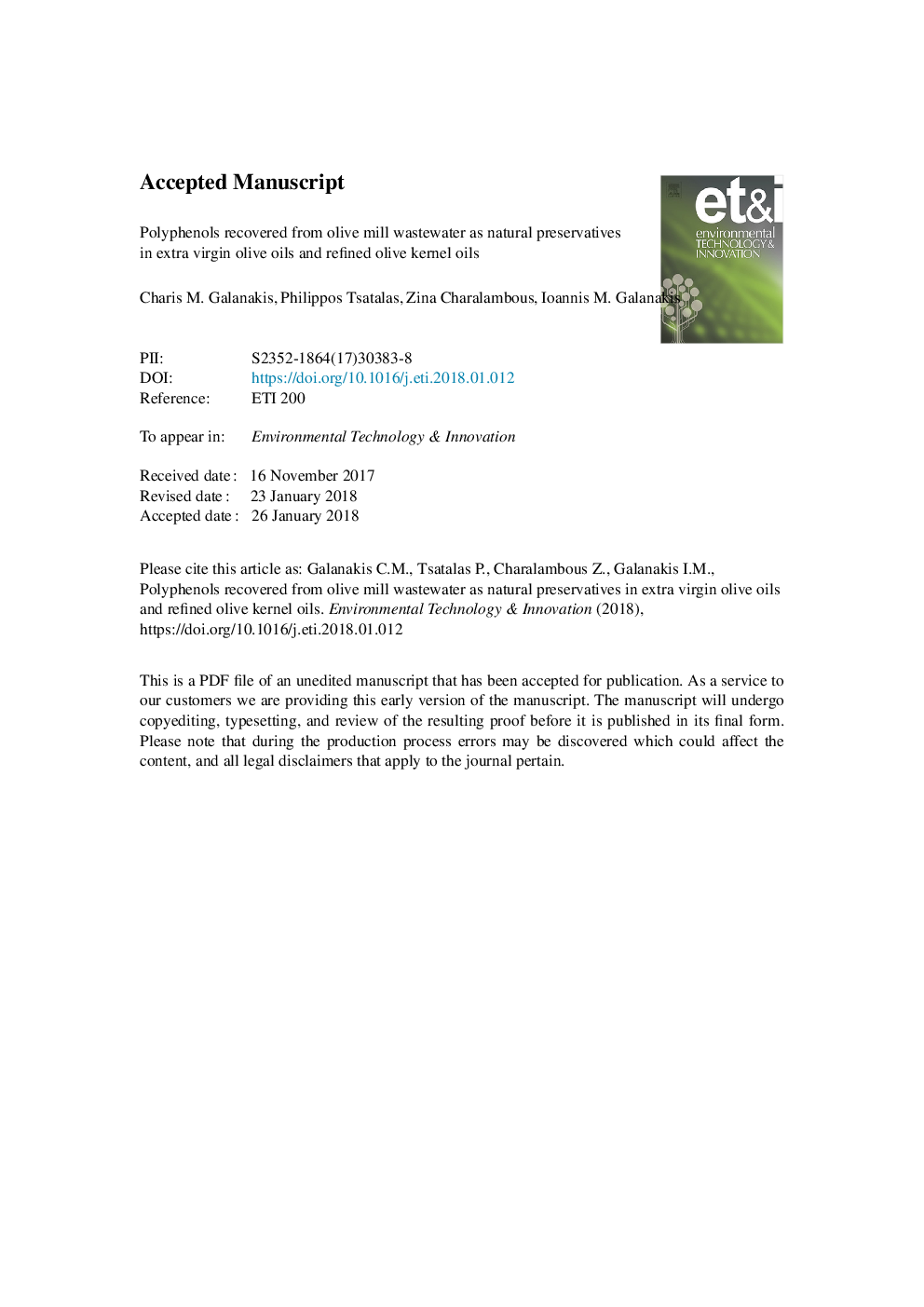| Article ID | Journal | Published Year | Pages | File Type |
|---|---|---|---|---|
| 8857959 | Environmental Technology & Innovation | 2018 | 27 Pages |
Abstract
This study tests the efficacy of polyphenols (recovered from olive mill wastewater) against ascorbic acid, tocopherols mixture and α-tocopherol for the prevention in oil oxidation. All antioxidants were mixed or emulsified at different concentrations (500-3000 mg/L) with an extra virgin and a refined kernel olive oil, prior heated in the oven at 100  °C (30 min) and 160  °C (120 min). The activity of antioxidants was monitored using the DPPH* radical scavenging assay and the oxidation of treated oils was monitored by determining peroxide value, p-anisidine values, total polar components, “totox” index and extinction coefficient (K270). Olive polyphenols at 500 and 3000 mg/L reduced the oxidation of both heated oils. Ascorbic acid at 2000 and 3000 mg/L was more efficient than the olive polyphenols, especially in the case of olive kernel oil. Tocopherols formulation showed low effectiveness against most oxidation indexes, probably due to their instability at high cooking temperatures. The outcomes of the current study contribute to the further valorization of olive mill wastewater as a source to produce high added-value polyphenols. The latest could be used as preservatives in olive and vegetable oils as well as in other foods rich in fats, e.g. meat products.
Related Topics
Life Sciences
Environmental Science
Environmental Chemistry
Authors
Charis M. Galanakis, Philippos Tsatalas, Zenovia Charalambous, Ioannis M. Galanakis,
